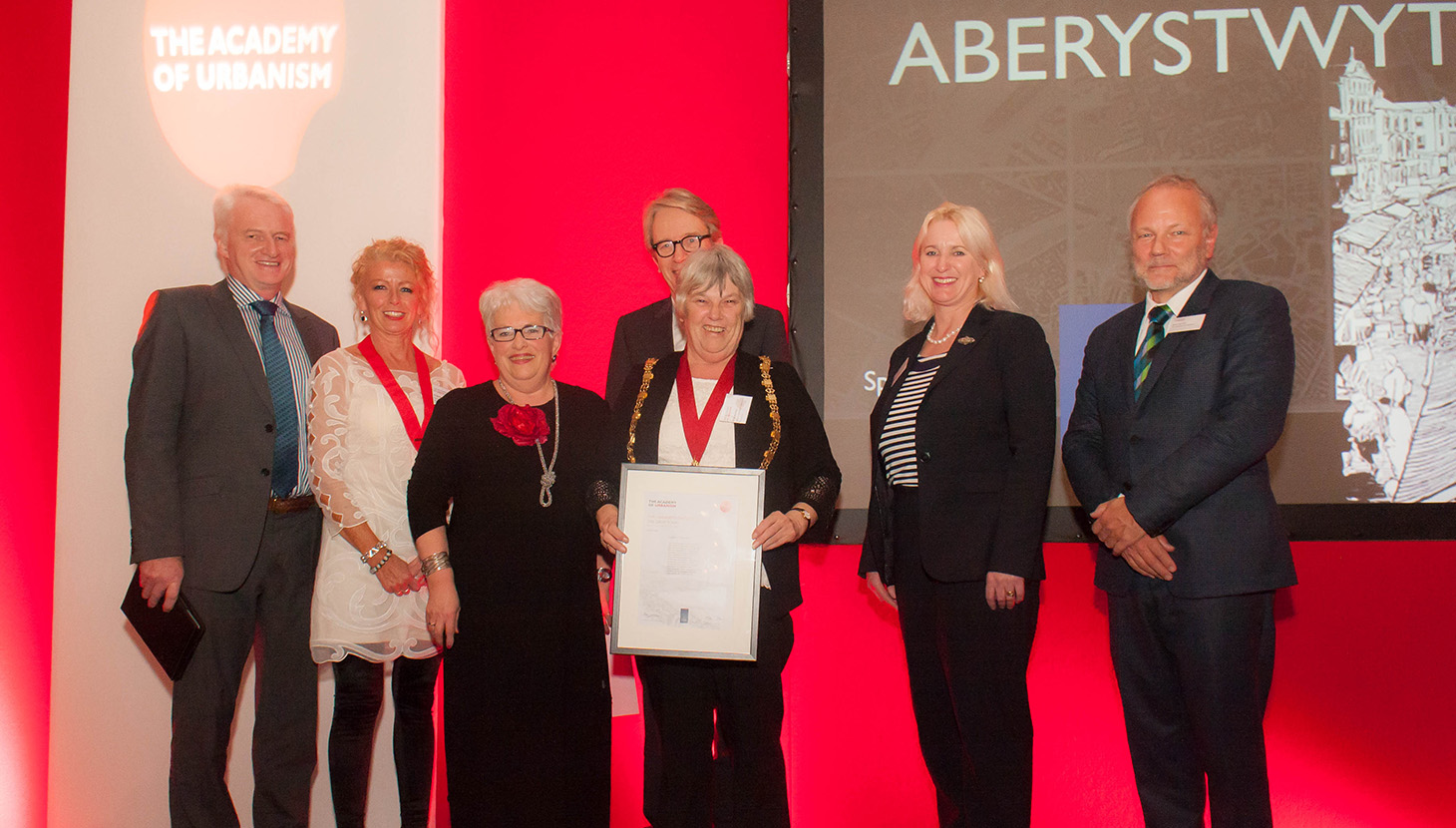ROTTERDAM NAMED EUROPE’S BEST CITY AT THE 2015 URBANISM AWARDS
Rotterdam has been crowned as the best city in Europe at today’s Urbanism Awards. The post-industrial city in the Netherlands beat off strong competition from Aarhus in Denmark and Turin in Italy.
The award is one of five given out annually by the Academy to recognise the best, most enduring or most improved urban environments. Voted on by Academicians, each award covers a number of social, economic and environmental factors, including good governance and commercial success.
Speaking about Rotterdam victory, chairman of the Academy Steven Bee said: “The City has a predominantly young, open, tolerant community that is embracing innovative architecture and urban design and new business models. Its strategy is to attract families and businesses to the central area with a variety of housing, excellent public transport and a lively public realm.”
Despite being a very closely fought battle, the Academy said that Rotterdam was a vote winner for its unique approach to governance. Appointed for six years by central government, the role of mayor sits outside of political structures and with no portfolio, allowing greater engagement with citizens and businesses. Bee said: “A long-term perspective, a high level of autonomy, strong leadership by the mayor and municipality, and strong partnerships between public and private sector, are all helping Rotterdam grow positively.”
Elsewhere, Aberystwyth in Wales picked up the Great Town award for its leading work in promoting its location, economy and liveability. Key to the result swinging in Aberystwyth’s favour was the attitude judges encountered towards creating and sustaining local partnerships, exemplified by the town’s response to the storms that devastated the seafront at the beginning of 2014. Tim Challans, lead assessor for the great town award, said: “The town’s resilience in recovering from the winter storms demonstrates how its people are passionate about their home.”
The other winners were: Holbeck Urban Village, a regenerated business-led community, which picked up the Great Neighbourhood award; Bridge Street / North Street in Taunton, which received the Great Street award; and St Pancras International, which won the Great Place award.
The Academy runs the urbanism awards to help promote and learn from great places. Stephen Gallagher, communications manager at the Academy, said: “This result is hopefully the start of a strong relationship with all of our finalists, each of whom has lessons and ideas to offer in terms of the physical, economic and social vitality of our places.”
This year, the Academy said that it has seen the emergence of collaboration and ‘co-production’ as a key ingredient in the delivery of successful places. Gallagher added: “These places are creating partnerships and working together so that they can compete at a higher level, attract investment and retain people,”.
Over the coming week the learning from all 15 finalists will be added to the Academy’s growing online archive of Great Places.
ENDS
For more information, interviews with winning entrants and awards ceremony photographs, email Stephen Gallagher on sg@academyofurbanism.org.uk. For more information about The Academy of Urbanism, visit: www.academyofurbanism.org.uk
Notes:
2015 Urbanism Awards finalists (winners are asterisked):
THE EUROPEAN CITY OF THE YEAR
Aarhus (Denmark)
Rotterdam (Netherlands)*
Turin (Italy)
THE GREAT TOWN AWARD
Aberystwyth (Ceredigion, Wales)*
Beverley (Yorkshire, England)
Bury (Lancashire, England)
THE GREAT NEIGHBOURHOOD AWARD
Broughty Ferry (Dundee, Scotland)
Devonport (Plymouth, England)
Holbeck Urban Village (Leeds, England)*
THE GREAT STREET AWARD
Bridge Street / North Street (Taunton, England)*
High Street Berkhamsted (Berkhamsted, England)
Elwick Road (Ashford, England)
THE GREAT PLACE AWARD
Bishops Square (Spitalfields, London, England)
Christmas Steps (Bristol, England)
St Pancras Station (London, England)*
The process
The Awards are open for nominations from anybody. The Academy shortlists 50 places across five categories, which are voted down to three finalists in each category by Academy members. The Academy then visits and assesses each of the 15 finalists before the final vote.
About The Academy of Urbanism
The Academy of Urbanism brings together thinkers and practitioners involved in the social, cultural, economic, political and physical development of our villages, towns and cities across Great Britain and Ireland.
The Academy was formed to extend urban discourse beyond built environment professionals, and to create an autonomous, politically independent and self-funded learned voice.
We aim to recognise, promote and learn from great places.

